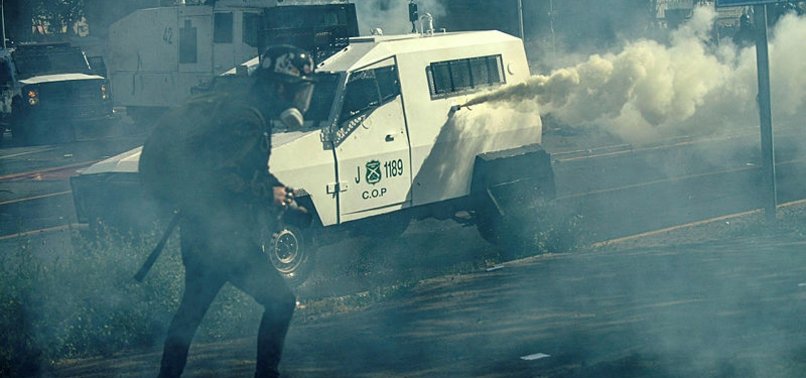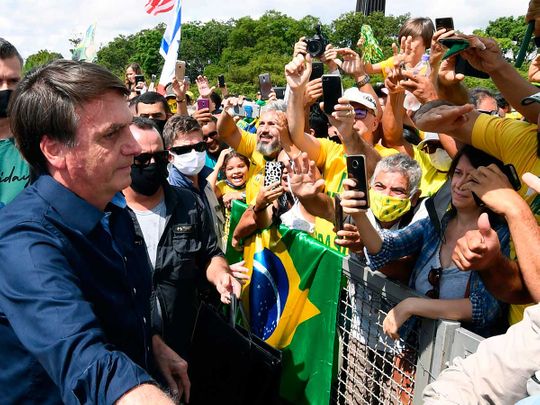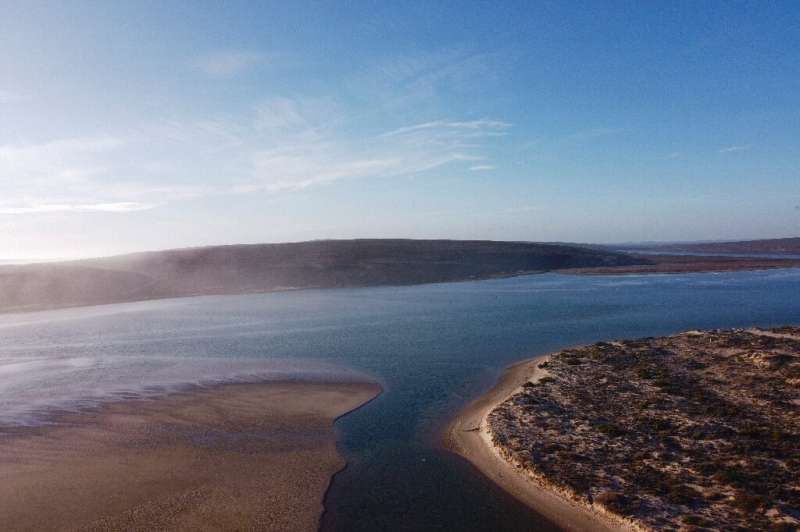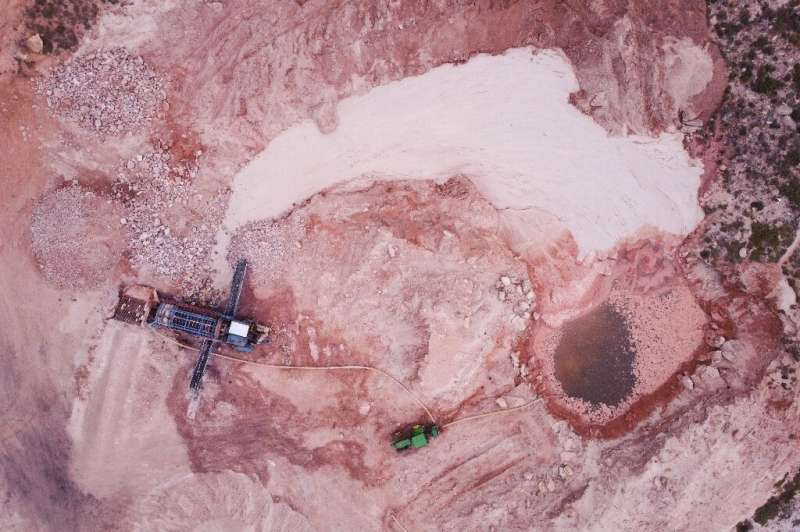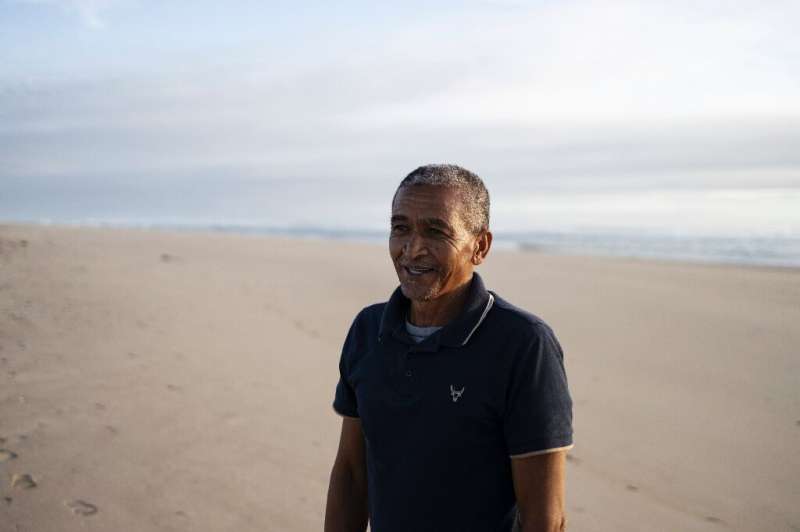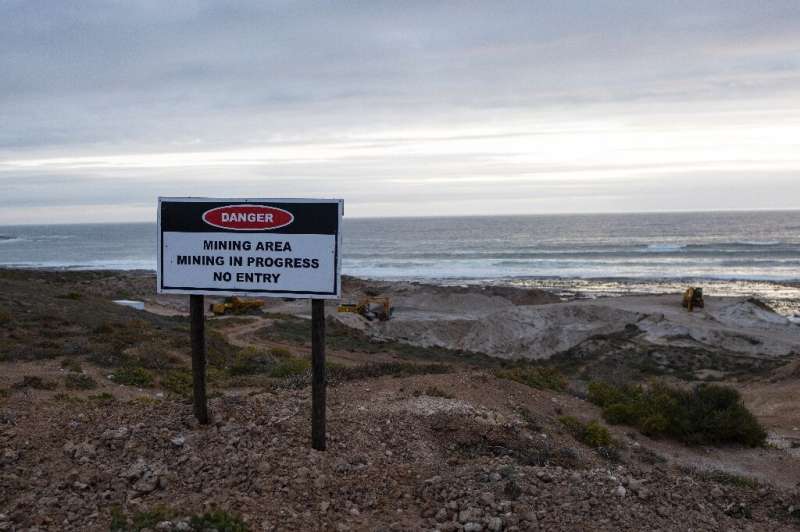200 arrested, dozens injured in Chile protests
In the capital Santiago, protesters set fire to a truck and stole two municipal buses, also looting supermarkets, a pharmacy and a toy store -- 15 commercial premises in all. Two dozen police officers and 18 civilians were injured in clashes at 150 demonstrations that gathered some 2,300 protesters countrywide, with 195 arrests made, according to Deputy Interior Minister Manuel Monsalve.
Some 200 people were arrested and dozens injured as social inequality protests around Chile descended into clashes and looting overnight, police said Wednesday.
In the capital Santiago, protesters set fire to a truck and stole two municipal buses, also looting supermarkets, a pharmacy and a toy store -- 15 commercial premises in all.
Two dozen police officers and 18 civilians were injured in clashes at 150 demonstrations that gathered some 2,300 protesters countrywide, with 195 arrests made, according to Deputy Interior Minister Manuel Monsalve.
The protests started Tuesday with burning barricades around Santiago on the anniversary of a social uprising that demonstrators say has not yet yielded the desired societal change.
Car traffic was disrupted, metro stations shuttered and school pupils sent home early, with 25,000 police deployed countrywide to keep the peace -- 5,000 of them in the capital, where several hundred demonstrators took to the streets.
The protests came exactly three years after the start of a mass revolt against a rise in metro fares in 2019 that quickly escalated into a general clamor for better conditions and social equality.
The government suspended the price hike, but protests continued, and dozens were killed over months of clashes. Hundreds of people were injured.
The 2019 demonstrations kickstarted reforms that included the government agreeing to the drafting of a new constitution to replace the one inherited from the military dictatorship of Augusto Pinochet and perceived as market-friendly.
In December, Chile elected leftist President Gabriel Boric, who supported the 2019 uprising and subsequent constitution-writing process.
But last month, nearly two-thirds of voters rejected the proposed draft despite the new revolutionary mood, amid concerns that parts of the document were too far-reaching.
Boric, a former student leader, came to office with promises of turning the deeply unequal country into a greener, more egalitarian "welfare state."

Matthew Malinowski
Tue, October 18, 2022
(Bloomberg) -- Chile President Gabriel Boric pledged to push through reforms, recognizing that scant progress has been made in addressing social discontent as the nation braces for violence marking the anniversary of the 2019 social uprising.
The government must end the “drought” in legislative changes through greater dialogue, meeting the demands that sparked the worst violence in Chile since the 1973-1990 dictatorship, Boric said Tuesday from the presidential palace in Santiago.
“Today we have a new opportunity to build the bases of a more just and dignified society,” said the former student leader who took over the presidency in March of this year. “This is the moment to act.”
After 30 years of steady growth and increasing prosperity, Chilean society was shaken by a massive wave of protests and riots starting on Oct. 18, 2019 that left a third of supermarkets in the country ransacked and the metro system in Santiago decimated. Yet, despite an attempt to rewrite the constitution and the arrival of Boric’s left-wing government, little has changed in terms of addressing the causes of unrest.
“We still haven’t established the reforms that solve the weakness in social rights,” Boric said. “That’s what the people tell us permanently in the streets.”
Last month, voters rejected a progressive, new constitution backed by Boric that was written in response to the 2019 protests. Lawmakers are currently engaged in slow-moving talks on how to revive the constitutional process.
“We know that Chileans want us to carry out reforms,” Boric said. “But, they aren’t giving a blank check.”
Social tensions have been exacerbated by the pandemic and Russia’s invasion of Ukraine, Boric added.
The president said his administration’s tax reform, which is currently in congress, will finance social programs, and that a forthcoming pension overhaul will guarantee better retirement payouts. At the same time, his administration is pushing a proposal to reduce the working week.
Boric’s remarks come days after a Cadem poll showed his approval rating diving to 27%, the lowest level of his presidency. The 36-year-old leader has come under fire over a weak economy and rising crime.
Indeed, many stores and schools nationwide plan to close their doors early on Tuesday in anticipation of street violence. The municipal government of downtown Santiago, where the presidential palace and government ministries are located, has asked residents to avoid putting trash out for collection amid fears it could be used to build street barricades.
